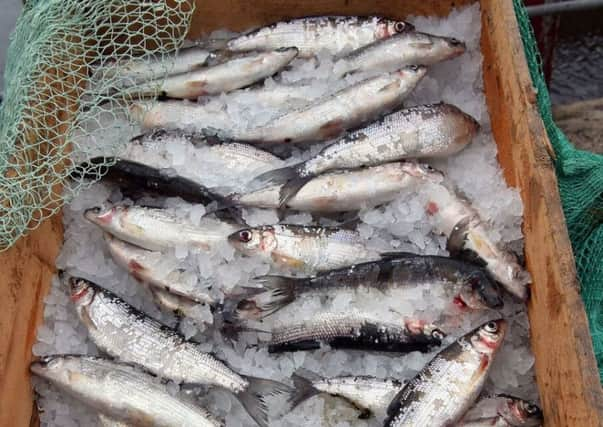The seas around our coastline bring forth an abundance of real treasures


The town is famous for the local crab and as we drove from Norwich to the coast, restaurants and pubs along the way announced that the delicacy was available inside.
It got me thinking about my adopted hometown of Portstewart with its amazing shellfish that’s currently in season. Most of our catch is sent to France and Spain. I would be in tears of joy if I saw an establishment in the town announcing on a blackboard that they were serving fresh crab that day.
Advertisement
Advertisement
Working with crab is an art. After boiling you open it up and remove all the white meat from the middle and the claws. Brown meat is at the sides. While the white meat is sweet, the brown is rich. Mix the brown meat into soft butter with herbs and spread on hot toasted sourdough bread for a seasonal treat. The white meat works well with sharp flavours like apple and citrus. My first recipe is for a salad with apple, cucumber and a lemon mayonnaise. Serve it with wheaten bread for a delicious light lunch. When you work with crab you’re left with the shell. My other recipe uses them, roasted to make a stock which is then transformed into a rich soup infused with some of the brown meat. It takes a bit of time and effort but close your eyes and you’ll be transported to a balmy evening in Marseille.
Another treasure from here that we tend to ignore is the Lough Neagh Pollan. Lough Neagh Pollan (a member of the Salmon family) are one of only a handful of fish species native to Ireland that have remained with us following the extinction impacts of Ice Ages. In science terms we call them a glacial relict, left over from the Saalian Ice Age (200,000 years ago), having lost their previous migratory behaviour as a consequence of sea temperature and salinity rises. Instead, the Pollan became restricted to the temperate freshwaters of Lough Neagh, leaving behind its closest relatives like the Arctic Omul and other members of the Cisco whitefish family to the cold waters of the Arctic. It recently became the first Protected Designation of Origin (PDO) for Northern Ireland. It’s a celebration of the authentic heritage fishing on the lough and something to be immensely proud of.
Most of the Pollan is exported to Switzerland where it’s fully appreciated. Only a handful of restaurants serve it here which is a real shame. It looks like a herring but has the taste of a freshwater fish. Traditionally it was fried in bacon fat with a few oats thrown in at the end. With the increase of tourists coming here, it’s a pity that they can’t enjoy this product readily. My first recipe is for a rye crispbread topped with pollan, beetroot and lovage. The bread requires no kneading – just mix and roll between two sheets of parchment and bake. Because of it’s earthiness, pollan is a perfect match for beetroot. Lovage is one of my favourite herbs that, thankfully, has been popping up in the garden. It has a deep celery, citrussy flavour and goes beautifully with the oily fish and beetroot, whizzed into yoghurt. You can source pollan directly from the fishery at Toome or ask your nearest fishmonger.